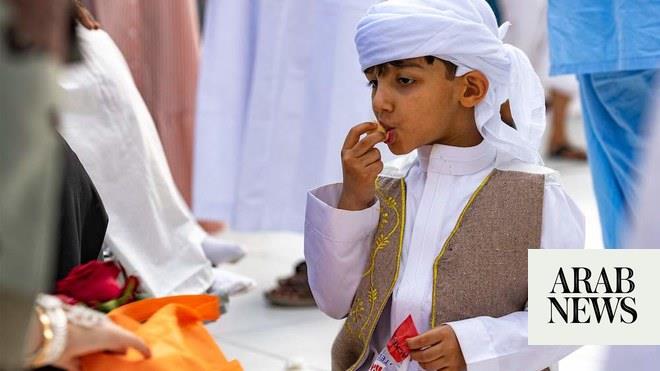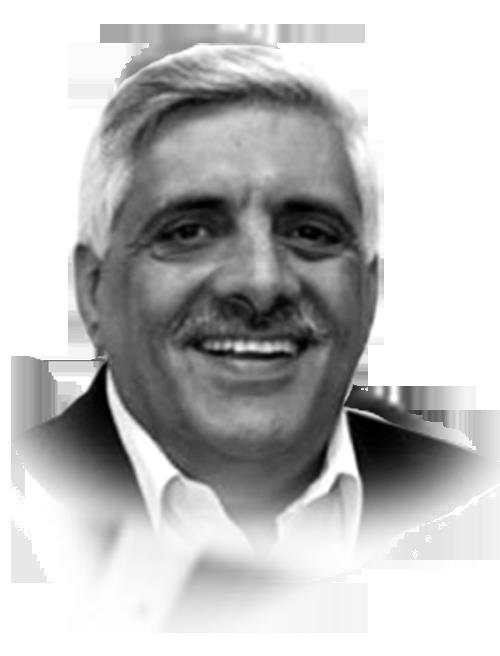
DUBAI: The newly updated Saudi scholarship program aims to once again move the Kingdom up the ranks as one of the top five largest markets for US colleges and universities in the years to come.
Saudi Arabia ranked third after China and India in 2015-16, with almost 62,000 students studying in US universities, dropping to fourth place in 2018-19 with 40,000 students.
However, the focus on education under the Vision 2030 modernization project makes young Saudis an integral part of economic and social reforms underway in the country.
More than $51 billion, or 18.9 percent of Saudi Arabia’s total budget, was assigned to education in 2020 to develop an education system that nurtures young talent while also meeting evolving labor market needs.
The revised approach for the Custodian of the Two Holy Mosques Scholarship Program, launched by Crown Prince Mohammed bin Salman on March 7, aims to send more than 70,000 Saudi students to top-ranked universities and training institutes abroad by 2030.
Young Saudi men and women have set their sights on the worlds top universities in a highly competitve academic race. (AFP)
“The younger generation in Saudi Arabia is outward looking and there is a huge demand and appetite for studying abroad, especially in the US more than anywhere else,” said Soraya Beheshti, regional director of Crimson Education, a university admissions consultancy.
The pioneers path, one of the scholarship program’s four paths, aims to send students to bachelor’s and master’s programs in all fields at the world’s top 30 education institutions.
Other paths under the program include the research and development path, the providers path, and the promising path, with each meant to stream students into particular fields and training courses.
The culture of studying abroad is further encouraged by Saudi Arabia’s high income levels and growing under-24 population of over 5 million, which has led to a noticeable trend of self-funded students abroad.
Moves to enhance the country’s education system and plans to house five of the world’s top 200 universities in the next decade have ensured the Kingdom remains a key recruiting ground for agents and educators in the region.
It is best to let a student explore the thing they are most passionate about and to nurture that innate interest as a child, according to Soraya Beheshti, regional director of Crimson Education. (Supplied)
“Countries in the GCC invest immensely in education and students tend to perform well in international examinations, yet we do not send high numbers of students to top universities compared with what we could do,” she said.
Beheshti, who was Crimson’s first student from the Middle East, is now setting up the organization’s KSA branch in hopes of narrowing the “information gap” in the admissions process and encouraging more Saudi students to apply to some of the world’s top-ranking universities.
Part of the problem can be attributed to students in the region needing higher SAT scores and stronger essay-writing skills. Beheshti believes that many students underestimate the effort and time it takes to apply to an Ivy League school, and even more so to get accepted by one.
At present, the acceptance rates for many universities and colleges, both in the US and UK, including the University of California Los Angeles, Massachusetts Institute of Technology, New York University, Duke University, and both Oxford and Cambridge, range between 4 and 8 percent, she said.
For many Saudi students applying to local universities, the requirements can be as minimal as sending high school transcripts to guarantee a spot just months before the start of their freshman year.
On the other hand, the decision to explore top universities abroad can be an overwhelming experience, and at times no longer an option for students in their final year of high school.
Saudi Arabia ranked third after China and India in 2015-16, with almost 62,000 students studying in US universities, dropping to fourth place in 2018-19 with 40,000 students. (AFP)
Most of the world’s top 30 universities have an application submission deadline that falls a year before the start of the first academic semester.
However, students applying on time will also have to think outside the box in order to put forward the best presentation of themselves.
In addition to demonstrating outstanding grades on their transcripts, students have to ensure that their extracurricular activities are nothing less than exceptional in order for their application to stand out among thousands of others.
Many of the top-ranking universities base 40 percent of their decision on academics, 30 percent on extracurricular activities, and 30 percent on essays and recommendations when considering an applicant, Beheshti said.
Students applying to universities through Crimson are assigned a personalized team, which can include a student success manager or education coordinator, a strategist, individual tutors and an extracurricular leadership mentor. FAST FACTS
* Custodian of the Two Holy Mosques Scholarship Program has three strategic pillars.
* Aims to send 70,000 students to 200 approved foreign institutions by 2030.
* Focuses on early planning for young students’ education futures.
* Strives to elevate Kingdom’s competitiveness locally and globally.
* Committed to supporting graduates returning from study abroad.
Students also have access to professors from top universities, and receive assistance with research, university tours and essay mentorship several months ahead of the application season, which falls between September and January.
“Young people are filled with ideas, and it’s really hard to figure out the first steps and then the next steps after that to actually turn the ideas into a real project,” Beheshti said.
“If we look at Stanford University, for example, 40,000 students apply every term and around 37,000 have the grades needed to be considered. Yet, tens and thousands are eliminated not because of academics, but simply because of their application essays and/or their extracurricular activities.
“Our opinion is not that these students don’t have good extracurriculars — it’s that they all look the same as everyone else’s. Students wanting to succeed are going to have to think differently.”
Saudi Arabia aims to host five of the worlds top 200 universities in the next decade as part of Vision 2030. (Supplied)
To stand a chance of being accepted, students must make great sacrifices and work hard to excel in areas they are interested in, as well as alter their thinking to match the approach taken by students in markets such as China and India, Beheshti said.
“In both countries, they see tutoring the way athletes see coaching,” she said.
“We in many countries think of tutoring as something you do when you’re behind and want to catch up. They see it as ‘you can be the best athlete in the world, but you still need a coach to help you get better.’”
Similarly, a strategist helps students figure out long-term goals, majors and the most suitable careers, and guides them with personal development and ways to manage stress throughout the admissions process.
“I predict more Saudi students will study abroad in the coming years, and the amazing thing is that a lot of people who want to study outside the Kingdom do want to come back and contribute to the country,” said Beheshti.
On their return, the Saudi scholarship program is committed to helping graduates improve their readiness to join the labor market locally and globally.
Additionally, companies such as Kaplan, which provide educational and training services to colleges, universities, businesses and individuals around the world, share the same goal.
“Graduate training for young nationals is key to bridging the gap between education and the workplace, empowering young national graduates to move forward on their career path with a positive attitude and a willingness to adapt to the business culture,” said Fiona McBride, managing director of Kaplan Professional Middle East.
The younger generation in Saudi Arabia is outward looking and there is a huge demand for studying abroad. (SPA)
According to McBride, with the arrival of big-league international organizations in the Gulf region, the demand for talented individuals has risen dramatically over the last decade.
“Employers are seeking talented individuals who have not just technical expertise, but also an array of soft skills such as leadership, confidence and decision-making abilities to excel at their job,” she told Arab News.
The job market points to a significant rise across industries in the need for vocational skills such as data and financial analysis, accounting, artificial intelligence, customer service and project management.
As a result, students must try to “future-proof” themselves by working toward professional qualifications in their career paths.
Integrating into the job market does not come without its challenges, she said, adding: “The expectations of fresh Saudi graduates to explore, innovate and be unconventional could take some time to be fulfilled owing to the traditional mindset of employers in the region.”
Nonetheless, the rapid pace of change and acceptance in the country should serve as a “ray of hope for the youth” and encourage them to explore the vast opportunities that the country has to offer, McBride said.
Another challenge fresh graduates face is navigating the workplace and understanding work culture. Similarly, this can be addressed with proper training that will ensure the graduates are ready for the work environment, she said.
However, the key to finding the right job role goes back to the beginning of a person’s educational journey.
Beheshti believes in encouraging “healthy ambition” and creating an environment where failure is accepted.
“It is best to let a student explore the thing they are most passionate about and to nurture that innate interest as a child,” she said.
Such an approach ensures that the student is “willing to put in the time and effort to succeed” throughout their educational and professional life.












